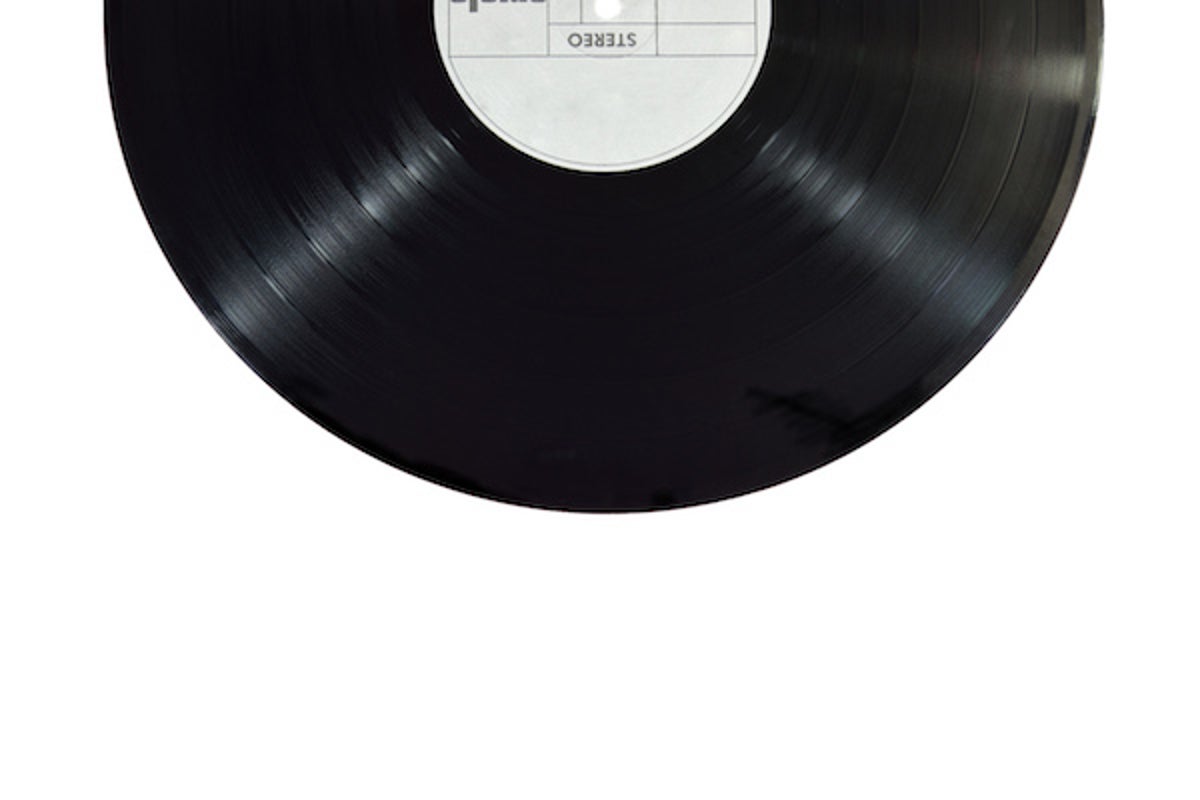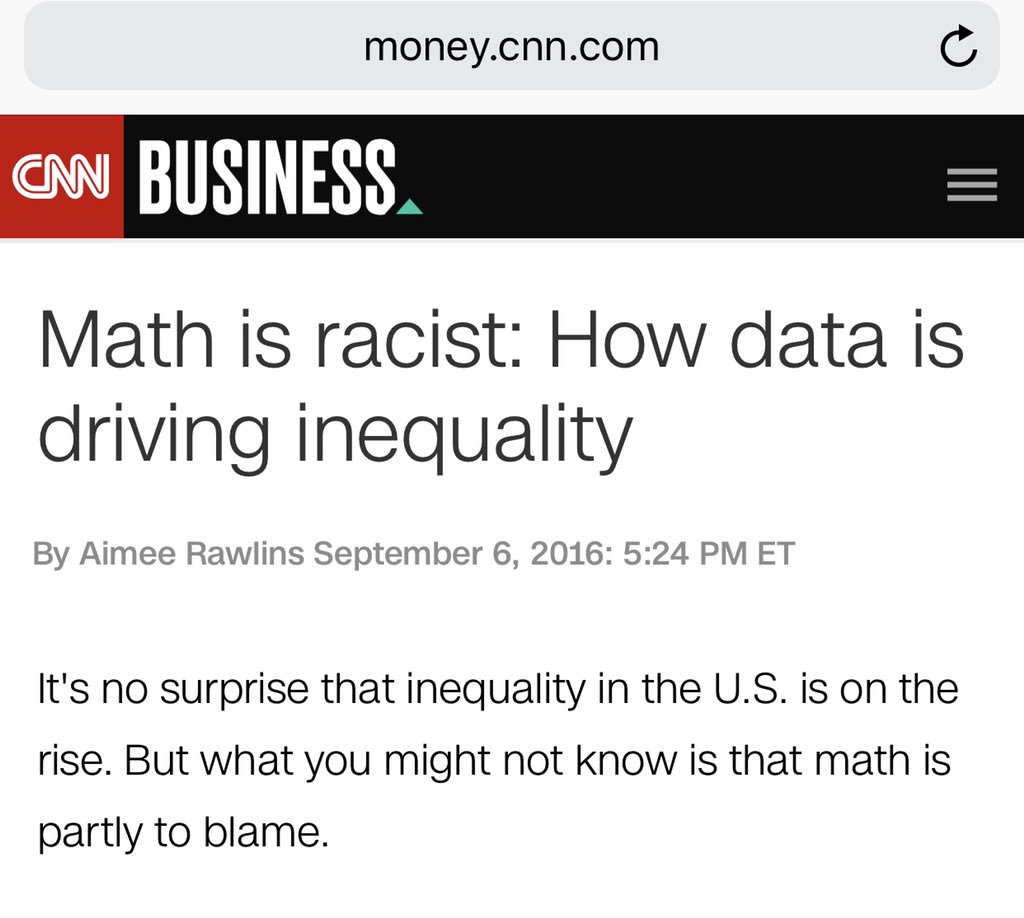I think the author's problem - a very common one - is the implicit idea that technically accurate sound reproduction must by necessity be also subjectively pleasing. Because quite a few people prefer the sound of vinyl over digital the author erroneously thinks it casts doubt on our current understanding of digital.That is a very good question. The answer is the writer had to know this or she isn't qualified for the degrees she has been awarded. So why was this article written? It isn't about science or informing people. It is a puff piece where a writer has to ignore reality to create an article of interest. Pathetic and worrisome.
-
WANTED: Happy members who like to discuss audio and other topics related to our interest. Desire to learn and share knowledge of science required. There are many reviews of audio hardware and expert members to help answer your questions. Click here to have your audio equipment measured for free!
You are using an out of date browser. It may not display this or other websites correctly.
You should upgrade or use an alternative browser.
You should upgrade or use an alternative browser.
Scientific American: Analogue is more enjoyable because of bad math.
- Thread starter Headchef
- Start date
JSmith
Master Contributor
No, it's the publisher that is to blame. They decided to put this piece of unscientific drivel on their site, just to get a few extra clicks... And guess what, it worked! We all fell for itI think the author's problem - a very common one
 . Sadly, such is the state of modern media...
. Sadly, such is the state of modern media...Headchef
Active Member
- Thread Starter
- #24
It might be worth ASR responding to it?No, it's the publisher that is to blame. They decided to put this piece of unscientific drivel on their site, just to get a few extra clicks... And guess what, it worked! We all fell for it. Sadly, such is the state of modern media...
Why? They're always publishing silly stuff. It stopped being interesting and important 15 years ago (at least).It might be worth ASR responding to it?
I did. But that only shows how powerful such drivel can be, even 4 years later, it gets a fresh batch of clicks from us.Looks like not everybody noticed that the article is 4 years old.
you are tiring.“It is a fact that digital recording is closer to the original input than vinyl”
how so? did you read the explanation of this? I’d be interested to hear yours…
Since 1977 the explanations has been gave some thousand times
“It is a fact that digital recording is closer to the original input than vinyl”
how so? did you read the explanation of this? I’d be interested to hear yours…
Basically music historically have been produced on Reel-to-Reel tape (Analogue), so to print the same material on Vinyl (magnetic tape -> indentations on a physical media) would be degrading to the material produced as the copying and printing and the playback process is likely not perfect. The entire paradigm shifted once cassette and VHS became a thing (big magnetic tape -> small magnetic tape).
however digitizing the Reel-to-Reel tape properly will be 99.99% representative of the material inside to the point that it doesn't matter anymore.
Then the whole paradigm of analogue mixing and production was discarded when CD became the dominant format and computers became common in studios.
Last edited:
Yawn - yet another article by someone who doesn’t fully understand the Nyquist-Shannon sampling theorem.
danadam
Addicted to Fun and Learning
- Joined
- Jan 20, 2017
- Messages
- 999
- Likes
- 1,562
Reminded me a bit of this:

 www.audiosciencereview.com
Also from PhD
www.audiosciencereview.com
Also from PhD 

Microtime - what do you think of this article?
Came across this article, what do you think about what it is professing - Microtime?! https://www.fairobserver.com/more/science/neil-young-vinyl-lp-records-digital-audio-science-news-william-softky-39078/
 www.audiosciencereview.com
www.audiosciencereview.com
Yet another writer who fails to remember the fact that neither gramophone records, nor any other analog medium, have infinite bandwidth or anywhere close.
While the writer here just about touches the notion that audio must be band-limited for reliable digitization, she entirely fails to appreciate that the practical, stable, bandwidth of most gramophones is narrower than that required for Red Book CD.
While the writer here just about touches the notion that audio must be band-limited for reliable digitization, she entirely fails to appreciate that the practical, stable, bandwidth of most gramophones is narrower than that required for Red Book CD.
audio2design
Major Contributor
- Joined
- Nov 29, 2020
- Messages
- 1,769
- Likes
- 1,832
why do I get the feeling that this scientific American is being less scientific than subjective?

Which Sounds Better, Analog or Digital Music?
The answer is subjective, but the underlying math is notblogs.scientificamerican.com
Old news and properly lambasted when released.
- Joined
- Oct 11, 2018
- Messages
- 3,741
- Likes
- 6,460
As many here have noted, SA started to become unserious years ago. I first noticed it (not sure the exact issue, must have been in the '80s) in an article about Food Stamps (SNAP). It was an article that would have possibly fit in a 'social science' magazine, or the NYT definitely. Just another example of Rudi Dutschke's 'march through the institutions.' SA isn't as grotesquely bad as Nat Geograph, which has turned into Nat Lamp, without the humor of the latter.
In fairness, the target audiences for IEEE publications and Scientific American are quite different.Haha. It was never anything like as difficult to read as the stuff I used to receive in magazines from IEEE when I was a member. Despite having a degree, it was obvious many people were so much deeper into the science than I would ever be. (cue Sheldon Cooper jokes...)
- Joined
- May 6, 2021
- Messages
- 125
- Likes
- 581
It is fact that in the music creation and recording process, many forms of alteration and distortions are added to flavor the sound. A common example is how even harmonics can be added to enrich the sound (I think first attributed to the Beatles White album).
So, unless one is making a generation loss recording, it's hard to know what sounds better on one pass and which will withstand being reproduced over generations (the latter being the more faithful to the signal).
There is a big variable with records that no one talks about and can lead to wildly different conclusions playing the same record.
The pick up is a vibration sensor, not only does it "pick up" the records wiggles but to the degree it's not in full contact with the platter everywhere, it's also a microphone to airborne sound. If you play records with a subwoofer, you probably already know about low frequency feedback.
One can get a clue how sensitive it is to room sound by taking a dud record and place the needle on the record BUT without the platter turning. Now turn the gain up to normal listening levels or a bit above and see how sensitive it is to vibrations and sounds. Far below the level needed to cause feed back, one can alter the signal with additional sounds.
This makes what you get dependent on things outside of normal consideration.
Adding some mud to the issue
Tom
So, unless one is making a generation loss recording, it's hard to know what sounds better on one pass and which will withstand being reproduced over generations (the latter being the more faithful to the signal).
There is a big variable with records that no one talks about and can lead to wildly different conclusions playing the same record.
The pick up is a vibration sensor, not only does it "pick up" the records wiggles but to the degree it's not in full contact with the platter everywhere, it's also a microphone to airborne sound. If you play records with a subwoofer, you probably already know about low frequency feedback.
One can get a clue how sensitive it is to room sound by taking a dud record and place the needle on the record BUT without the platter turning. Now turn the gain up to normal listening levels or a bit above and see how sensitive it is to vibrations and sounds. Far below the level needed to cause feed back, one can alter the signal with additional sounds.
This makes what you get dependent on things outside of normal consideration.
Adding some mud to the issue
Tom
Pity, though. At one time, it was a good source for me to get a general idea of what was going on in areas outside my specialty, and it was a good starting point if I had to rapidly become an expert in something new. Now it's dumbed down and unreadable.In fairness, the target audiences for IEEE publications and Scientific American are quite different.
MaxRockbin
Active Member
Headline aside, the article is mostly referencing the book "Weapons of Math Destruction," which has a lot really great info on data abuses in commonly used machine learning models that are having real negative effects on society. The headlines about Facebook's abuses are barely the tip.
Similar threads
- Replies
- 5
- Views
- 370
- Replies
- 10
- Views
- 975
- Replies
- 9
- Views
- 1K
- Replies
- 4
- Views
- 305
- Replies
- 3
- Views
- 504


